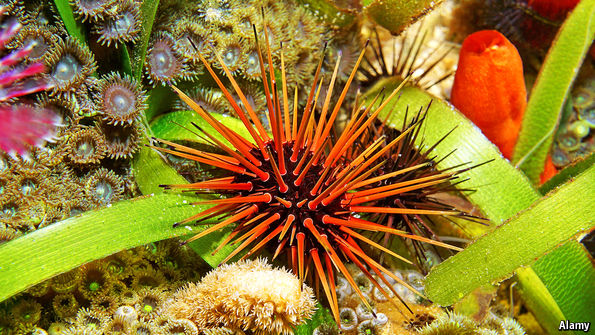Ocean acidification: a natural experiment
 Tough but vulnerable
Tough but vulnerableGLOBAL warming is not the only environmental change that is being wrought by rising emissions of carbon dioxide. This gas, acidic when dissolved in water, is also lowering the pH of the world’s sea water—a phenomenon known as ocean acidification.
How much to worry about this acidification (or, strictly, reduction in alkalinity, for there is no risk of the sea actually becoming acidic) is a matter of debate. The threat most talked of is to creatures that make shells out of calcium carbonate. As school chemistry experiments with chalk and vinegar demonstrate, calcium carbonate dissolves in acid, so an ocean less alkaline than it used to be might make life harder for shell-forming animals. Numerous laboratory experiments agree. There is also evidence that the shells of several widespread marine species are thinner and weaker now than they were a few decades ago. What there has not been, though, is a controlled study in the wild—at least, not until now.
The gap has been plugged by Miles Lamare of the University of Otago, in New Zealand, and his colleagues, who have just published their study…Continue reading
Source: Economist




